





 Das ZDF zeigt eine Dokumentation über die Auswirkungen des Corona-Virus auf das Zweite Deutsche Fernsehen. Abrufbar ist der Film in der ZDF-Mediathek.
Das ZDF zeigt eine Dokumentation über die Auswirkungen des Corona-Virus auf das Zweite Deutsche Fernsehen. Abrufbar ist der Film in der ZDF-Mediathek.
The EBU report "TRUST IN MEDIA 2020" explores the persistent 'trust gap' between traditional and online media, and the correlation between press freedom and trust in radio and TV media.
It will also give you insights into how people are turning to PSM news content as an essential trusted source in the current COVID-19 crisis.

Ein Auszug der Ergebnisse:
⊗ 84 Prozent der Befragten halten öffentlich-rechtliche Medien für wichtig oder sehr wichtig für die Allgemeinheit.
⊗ Für 74 Prozent der Befragten hat der öffentlich-rechtliche Rundfunk auch eine persönliche Relevanz.
⊗ Rund 37 Millionen Menschen haben die ZDF-Nachrichten im Fernsehen während der Krise pro Woche erreicht.
⊗ 70 Prozent der Befragten befinden das öffentlich-rechtliche Fernsehen im TV und Netz als "verlässlichen Begleiter durch die Krise".
⊗ 73 Prozent finden die Angebote des öffentlich-rechtlichen Fernsehens hilfreich, um sich "eine eigene Meinung über die Maßnahmen zu bilden".
Zur Studie: Die gesellschaftliche Relevanz des öffentlich-rechtlichen Rundfunks in Corona-Zeiten

Die Public-Value-Koordination der ARD hat das umfassende Engagement der ARD im Zuge der Corona-Krise nun zusammengefasst. So bietet die ARD neben verlässlicher und unabhängiger Berichterstattung auch zahlreiche, weitere Angebote, wie etwa Corona-Podcasts, an.
Mehr dazu im Infopapier der ARD: Public Value der ARD in Corona-Zeiten
 In 2017 the European Broadcasting Union (EBU) created a multi-platform campaign, called 'Keep Media Good' to demonstrate the positive impact Public Service Media (PSM) has on its audience. It was the first time broadcasters from all over Europe came together to create this pan-European PSM campaign. In powerful films broadcasters showed their audience's stories about how PSM influenced their lives in a positive way. All stories are available on keepmediagood.com in 7 different languages. "Our aim was to get people across Europe, and in particular young people, to re-appraise the value of their national PSM brand and understand its place within a bigger collective."
In 2017 the European Broadcasting Union (EBU) created a multi-platform campaign, called 'Keep Media Good' to demonstrate the positive impact Public Service Media (PSM) has on its audience. It was the first time broadcasters from all over Europe came together to create this pan-European PSM campaign. In powerful films broadcasters showed their audience's stories about how PSM influenced their lives in a positive way. All stories are available on keepmediagood.com in 7 different languages. "Our aim was to get people across Europe, and in particular young people, to re-appraise the value of their national PSM brand and understand its place within a bigger collective." Since the beginning of the crisis, audiences ran straight towards their national public broadcasters for reliable and trustworthy informations. PSM were recently falling into a crisis in audience numbers with sliding trust ratings, when something happened that no one could have foreseen: "It took the combination of an unpredictable and highly infectious disease, a pandemic, governments swimming in uncertainty, loss of personal freedoms and above all, a growing need for the truth to bring back those people we thought we might have lost forever", says Liz Corbin, Debuty Media Director of the EBU.
Since the beginning of the crisis, audiences ran straight towards their national public broadcasters for reliable and trustworthy informations. PSM were recently falling into a crisis in audience numbers with sliding trust ratings, when something happened that no one could have foreseen: "It took the combination of an unpredictable and highly infectious disease, a pandemic, governments swimming in uncertainty, loss of personal freedoms and above all, a growing need for the truth to bring back those people we thought we might have lost forever", says Liz Corbin, Debuty Media Director of the EBU.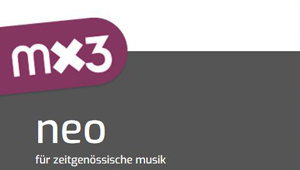

 The non-profit organization Academy of Russian Television (ART) has asked the government to include regional TV in the list of industries most affected by the spread of coronavirus. The Academy, which is uniting the interests of Russian broadcasters and television producers, says hat the role of television in providing objective coverage of the current situation is more important than ever fort he Russian regions.
The non-profit organization Academy of Russian Television (ART) has asked the government to include regional TV in the list of industries most affected by the spread of coronavirus. The Academy, which is uniting the interests of Russian broadcasters and television producers, says hat the role of television in providing objective coverage of the current situation is more important than ever fort he Russian regions.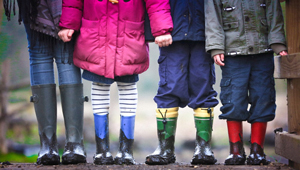 The Office of Communication (Ofcom) has published a research on how children aged 12-15 are acting and receiving on news and information about COVID-19. The research is based on the responses of over 500 children, covering weeks three and four of the lockdown. It shows that
The Office of Communication (Ofcom) has published a research on how children aged 12-15 are acting and receiving on news and information about COVID-19. The research is based on the responses of over 500 children, covering weeks three and four of the lockdown. It shows that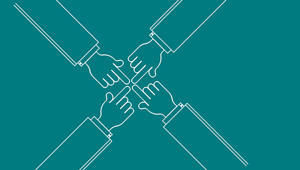


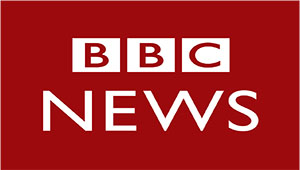 In der Rubrik "Your Coronavirus Stories" sammelt die BBC persönliche Geschichten zum Leben in der Coronakrise. Zuseher/innen können ihre Geschichten, Bilder oder Videos, die sie gerne veröffentlichen würden, per Mail, Whatsapp oder Twitter einsenden. Eine Auswahl davon wird auf der Website veröffentlicht.
In der Rubrik "Your Coronavirus Stories" sammelt die BBC persönliche Geschichten zum Leben in der Coronakrise. Zuseher/innen können ihre Geschichten, Bilder oder Videos, die sie gerne veröffentlichen würden, per Mail, Whatsapp oder Twitter einsenden. Eine Auswahl davon wird auf der Website veröffentlicht.



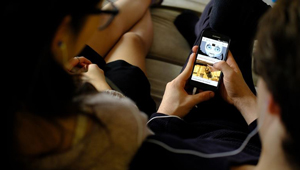 Die Corona-Krise hat, laut einer Studie des EBU Media Intelligence Service (EBU MIS), basierend auf Daten von GlobalWebIndex, die Einflüsse der Corona-Krise auf das digitale Mediennutzungsverhalten von Menschen in Frankreich, Deutschland, Italien, Spanien und Großbritannien untersucht.
Die Corona-Krise hat, laut einer Studie des EBU Media Intelligence Service (EBU MIS), basierend auf Daten von GlobalWebIndex, die Einflüsse der Corona-Krise auf das digitale Mediennutzungsverhalten von Menschen in Frankreich, Deutschland, Italien, Spanien und Großbritannien untersucht.